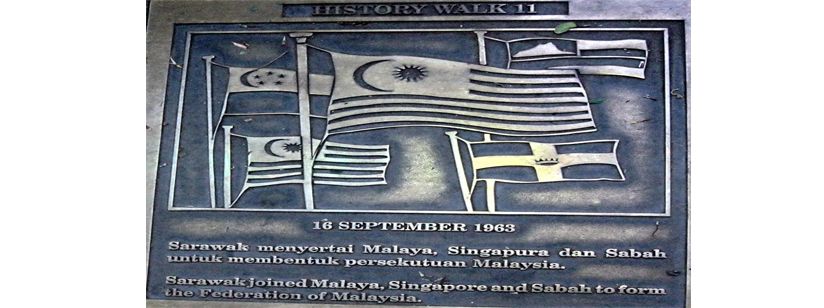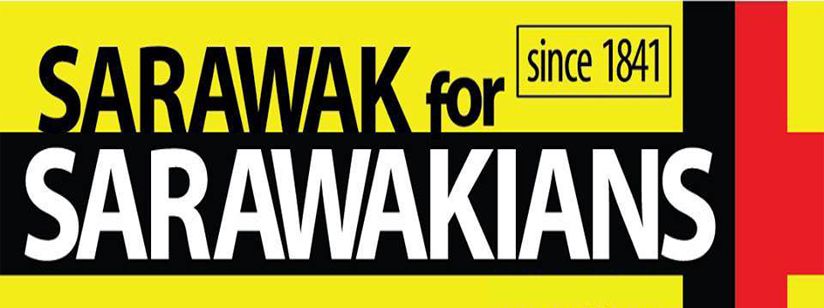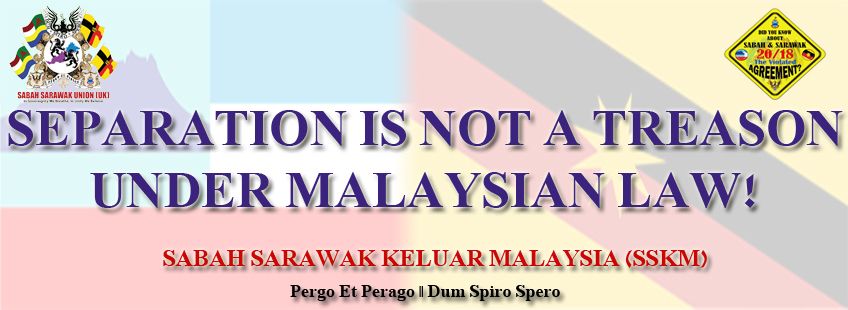Saturday, 15 November 2014
Sepatutnya Ada 3 Perdana Menteri Dalam Persekutuan Malaysia
KOTA MARUDU: "Persekutuan Malaysia yang ada sekarang harus distrukturkan semula seperti mana semangat dan intipati persetujuan asal penubuhan Malaysia, iaitu setiap negara anggota merupakan entiti yang berasingan dan mempunyai individualiti masing-masing," kata Jebon Janaun, Presiden Momogun Movement for Self-Determination (MOSIK).
Perjanjian Malaysia 1963 harus dihormati seperti mana persetujuan asal penubuhan Malaysia yang terdiri daripada empat negara yang terlibat, iaitu Malaya, Singapura, Sabah, dan Sarawak. Tetapi pada 9 Ogos 1965, Singapura disingkirkan dari Persekutuan Malaysia, menjadikan negara yang menganggotai Persekutuan Malaysia tinggal lagi Malaya, Sabah, dan Sarawak.
Menurutnya, status Sabah dan Sarawak sebagai negara harus dipulihkan. Lambat atau cepat matlamat perjuangan ini dicapai, status Sabah dan Sarawak sebagai negara tetap dipulihkan. Apabila Persekutuan Malaysia yang sebenar wujudkan, maka akan ada Tiga Perdana Menteri sebagai ketua eksekutif bagi tiga negara yang menganggotai Persekutuan Malaysia, iaitu Perdana Menteri Malaya, Perdana Menteri Sabah, dan Perdana Menteri Sarawak.
"Kesedaran Sabahan dan Sarawakian amat penting. Rakyat di kedua-dua negara yang telah diturunkan statusnya ini harus bersatu menuntut hak kemerdekaan. Pulihkan status Sabah dan Sarawak sebagai negara dalam Persekutuan Malaysia. Ini bukan soal berpisah dari Persekutuan Malaysia. Kita tidak menyokong sebarang gerakan pemisahan dalam Persekutuan Malaysia. Kita menuntut supaya Persekutuan Malaysia yang sebenar ditegakkan, iaitu setiap negara anggota mempunyai entiti yang berasingan. Ini akan mengukuhkan Persekutuan Malaysia," katanya.
Jebon Janaun
Presiden,
Momogun Movement for Self-Determination (MOSIK),
Kota Marudu
15 November 2014.
Saturday, November 15, 2014
Independence
,
International
,
News
,
Scotland
,
Sharing
,
UK
No comments
Alex Salmond hails achievements in government and warns independence fight is not over during final First Minister's Questions
A DEFIANT Alex Salmond made his final appearance at First Minister’s Questions yesterday – and insisted his Government had made “substantial achievements” in office.
And in another swipe at opponents he will today invoke England’s World Cup win as he promises to fight on for Scottish independence .
In a farewell speech to the SNP faithful, he will say: “They thought it was all over – well it isn’t now.”
Salmond will adapt the famous line of commentary – “they think it’s all over, it is now” – at the party conference in Perth.
Salmond, who will step down as SNP leader just hours before making the speech, made his final appearance at First Minister’s Questions yesterday .
He said: “I think the administration has had a substantial record of achievement over these last seven years.
“I think there have been substantial achievements – if I could name but two, the
reintroduction of free higher education in Scotland and, looking forward, the introduction of free school meals in primaries one to three – I think that’s a substantial move forward.”
But Labour claimed his “real legacy” is leaving Scotland “more divided than ever”.
Stand-in Scottish Labour leader Jackie Baillie told him: “Today does mark the end of an era. No one can deny Alex Salmond’s passion for Scotland, nobody can deny his love for his country.
“But the real tragedy is that he was so blinkered by his passion for independence that the powers he already has, powers to tackle poverty, reduce inequality, to deliver social justice, were pushed into second place.”
Salmond will hope his speech today can enthuse his energised party ranks just two months on from his 55-45 defeat in the independence referendum .
He insists the vote signalled the beginning of the end for the Union. He will say: “Despite everything the Westminster establishment threw at Scotland, 45 per cent of the people – 1.6million women and men living and working in Scotland – chose hope over fear.
“A much higher number than our opponents thought possible when we started this campaign.
“After the referendum, those very opponents believed that Scotland had been quietened, that we’d had our day in the sun and we should be politely put back in our box. They thought it was all over – well it isn’t now.”
Salmond announced he was to quit on the day of the referendum defeat . But he leaves the party in remarkable shape for incoming leader Nicola Sturgeon.
Since the referendum, membership has surged from about 26,000 to 84,000. Salmond wants another push – to 100,000.
Saturday, November 15, 2014
Independence
,
International
,
News
,
Scotland
,
Sharing
,
UK
No comments
Alex Salmond: Scotland can't go on as a country blessed with full pockets and cursed with deep poverty
SCOTLAND is a hugely wealthy country – but for far too many people living here it doesn’t feel that way.
That was one key message of the Yes campaign during the referendum campaign.
And although we didn’t win the vote, that message remains just as relevant.
How is it that a country blessed with such huge resources still has deep pockets of poverty?
In recent decades the UK has become one of the most unequal societies in the developed world. And the Tory-Lib Dem austerity agenda is doing nothing to reverse that trend – quite the opposite, in fact.
While Labour may try to talk a good game on social justice, their record in office shows they are just as culpable for that widening gap between rich and poor.
The good news is there is a way out of the austerity trap, the cuts agenda and the obscenity of child poverty and food banks. Because although the referendum didn’t deliver independence, it has ensured serious and substantial new powers are coming Holyrood’s way.
The Vow signed up to by the Westminster leaders in this newspaper means there is now no alternative to delivering powers which give the Scottish Parliament real financial clout.
The powers have been described as “devo max”, “home rule” and, by Gordon Brown, as “close to federalism”. To live up to that billing, the powers must deliver full financial freedom for Holyrood.
Giving the Parliament full financial powers will tackle inequality and promote competitiveness, allowing businesses to thrive.
The experts who have advised me on economic issues met this week – and made clear that Scotland needs substantial devolution of control of taxation, not just responsibility for a small basket of taxes.
Being in control of a broad tax base will ensure that Holyrood is not over-reliant on one or two particular taxes for income.
And the Council of Economic Advisers made clear that having full power to vary the bands and rates of taxes is much preferable to being handed the revenues from particular taxes – which would create the illusion of more autonomy.
Take just one example – air passenger duty (APD). Giving Holyrood control of APD is backed by Scotland’s major airports and by big players in the aviation industry.
The UK has one of the highest rates of air passenger tax, strangling growth and preventing airlines from bringing flights to Scotland. With control of APD, we could attract more international flights, creating more jobs and opening up more of our economy to the rest of the world, while also cutting fares.
Holyrood should also get control of the welfare budget, a powerful tool to support jobs and reduce inequality.
It is vital the new powers being discussed by the commission deliver the financial tools we need to make the most of our economic potential.
I will be standing down as First Minister – but I will still be around to keep an eye on things and to make sure the Westminster parties deliver on their Vow.
Saturday, November 15, 2014
Agreement of Malaysia
,
Exposing the Truth
,
Federation of Malaysia 16 September 1963
,
Jeffrey G.Kitingan
,
Nationalist
,
Sabah
,
Sarawak
,
Simon
,
SSKM
,
STAR
No comments
In Sabah and Sarawak, sedition dragnet fails to dampen secession talk
More East Malaysians are signing a petition calling for Sabah and Sarawak to leave Malaysia despite the threat of being charged with sedition, a prominent Sabah politician told a forum last night.
Datuk Jeffrey Kitingan said the petition to the United Nations, that could pave the way for a hearing on whether Sabah and Sarawak have the right to self-determination, has so far gathered 20,000 signatures.
This is even while the police have launched investigations into another group who has an online petition on whether Sabah and Sarawak should leave Malaysia.
Kitingan said instead of causing fear, the police investigation over calls for secession has sparked more interest among ordinary Sabahans and Sarawakians.
“The situation is not like 20 years ago. You can see this on the Internet and social media.
“Young people are not afraid of being arrested because they believe something must be done.
“Instead of trying to create fear, Putrajaya should be listening to them and figuring out why they are unhappy and dissatisfied,” said Kitingan, who is president of Sabah opposition party STAR (Sabah State Reform Party).
He was speaking to reporters after a forum, “Revisiting the Malaysia Agreement 1963”, organised by the Negara-Ku people's movement in Kuala Lumpur, last night.
Others who spoked at the forum were Institute of Malaysian and International Studies (Ikmas) research fellow Dr Helen Ting and former Malaysian Human Rights Commissioner Tan Sri Simon Sipaun.
Although talk of secession is considered treasonous, the past few years have seen a rise in nationalist sentiments among East Malaysians of all ages, speaking out against Putrajaya's treatment on Sabah and Sarawak.
One online movement demanding for a review of the 1963 Malaysia Agreement which gave birth to the Federation is the Sabah Sarawak Leave Malaysia Facebook group or SSKM.
On September 3, Sabah police said they have started joint investigations against the group under the Sedition Act 1948, with the Malaysian Communications and Multimedia Commission (MCMC).
The group has been accused of inciting racial friction and attempting to disrupt public order.
Kitingan, however, defended the group, saying that it was only conducting an online petition.
The group’s website states that its purpose is to campaign for greater self-government for Sarawak and Sabah.
Kitingan is also leading a separate but similar campaign through the Borneo Heritage Trust and Sarawak Association for People’s Aspiration, to collect signatures for a petition to the United Nations. If successful, it could lead to recommendations that Sabah and Sarawak be allowed to decide on their future in Malaysia.
“A lot of people are signing on despite the climate of fear. The sedition investigation has accelerated interest in our cause," Kitingan said of the petition, which has so far gathered 20,000 signatures and aims to collect 300,000.
A straw poll by The Malaysian Insider in July showed that feeling of secession was high among Sarawakians, while Sabahans generally wanted more autonomy on how they should be governed.
The anger stems from Putrajaya not fulfilling the terms of the Malaysia Agreement in 1963, which brought Malaya, Singapore, Sabah and Sarawak to form the Federation.
Among their grouses is that Putrajaya does not allocate a fair amount of development funds for Sabah and Sarawak even while almost all of its petroleum profits flow to the federal government.
Under the agreement, Sabah and Sarawak were supposed to get more autonomy on its finances, education, civil service and religious affairs.
In Sabah, locals are especially angry with what they perceive are attempts by Umno to change the state's demographics by giving out identity cards to Muslims from the Philippines and Indonesia.
Kitingan proposed that Putrajaya consider drafting a new Malaysia Agreement giving more rights to Sabah and Sarawak to govern their affairs.
“We want to restructure the Malaysia Agreement. We don’t want to leave. But if you don’t want things to work out, then we will have to go our own way.”
Sipaun, however, was optimistic that things could still change for the better and that a solution could be found to the problems and unhappiness faced by East Malaysians.
“My position is that if we separate, we will be flying into the fire. Already there are too many illegals in Sabah and there is no provision for secession.," he told the forum last night.
“I believe we should still remain in Malaysia. All that we need is fair treatment.”
Ikmas's Ting (pic, left) agreed with a question from the audience, that there was complicity by the state political leaders with federal politicians, which in turn has caused problems in both states.
“However, there has also been clear instances in the past of federal politicians supporting state leaders, who were compliant with the former, against other leaders who are seen as rebellious, all with the aim of safeguarding the two states as their vote bank," she said.
“There are villagers in the interior of Sabah where people don’t have ICs and yet you have all these foreigners walking around with Malaysian citizenship." – September 30, 2014.





























































